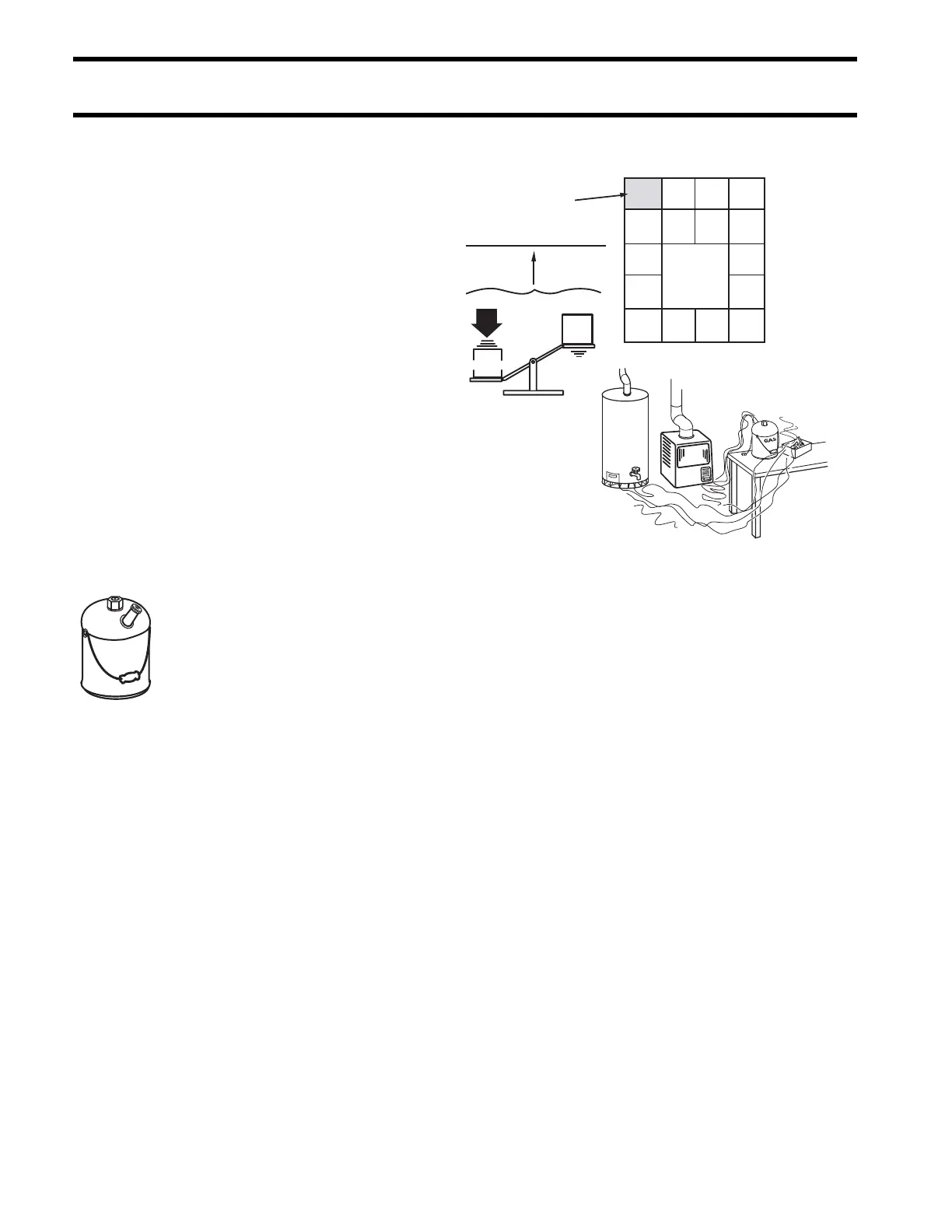S–22
SAFETY
Gasoline – Handle With Care!
What can you do?
• Always store gasoline outside in a safe can (flame arrester and pressure relief valve in pour spout).
• Fill portable tanks outside of boat. Spillage will collect in bottom of boat.
• Use fuel as fuel ONLY, not for a cleaner or degreaser.
• If fumes are smelled in shop, basement, or garage, immediately:
– Put out open flames, cigarettes, sparking devices;
– Wipe up spill or leak;
– Get towels and rags outside fast;
– Open doors and windows; and
– Check lowest area for fumes.
Be aware of items in and around repair area which can ignite fumes. Control them if fumes are smelled.
• Matches, cigarettes, blow torches, welders
• Electric motors (with unsealed cases)
• Electric generators (with unsealed cases)
• Light switches
• Appliance pilot lights or electric ignitors (furnace, dryer, water heaters)
• Loose wires on running outboards
• Other variables which may ignite fumes
How many of these are in your repair area?
20
Parts
Air
By
Volume
1 Part Gasoline
Gas
Fumes
If the air around you is
calm, the pilot light in
the heater could ignite
the heavy fumes before
your nose ever smells
the fumes.
Gasoline vapor and air mixtures
explode easily and violently when
mixed as shown...
When you smell ANY odor of gasoline,
explosion is possible.
Gasoline fumes are heavy and will sink
to the lowest point in the boat or room
and will STAY there, WAITING...
Store gasoline in sturdy, approved,
sealed gas can and keep outside.

